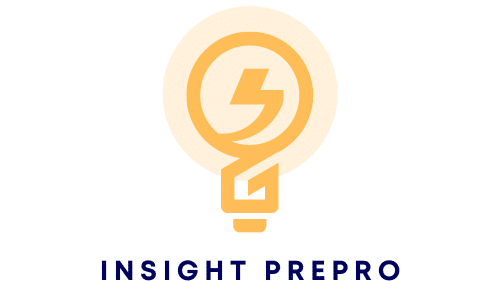Within the vast realm of healthcare, artificial intelligence (AI) has emerged as a potent tool. It’s carving a new path towards predicting outcomes in clinical trials, thereby transforming the way our medical world works. You might be wondering how? Well, buckle up as we take you on an enlightening journey through the intriguing world of AI and its remarkable role in predicting clinical trial outcomes.
Unveiling the Potency of AI in Healthcare
Artificial intelligence is no longer limited to sci-fi movies or tech-savvy spaces. It’s making a splash in the healthcare sector, offering a plethora of opportunities for researchers, physicians, and most importantly, patients. By utilizing sophisticated algorithms, AI has the potential to dig deep into clinical data and bring out valuable insights.
This might interest you : How Are AI Models Transforming the Field of Environmental Monitoring and Conservation?
AI, with its machine learning capabilities, can analyze patient data and predict health outcomes. It can foresee whether a drug will be successful in a trial or not, saving time, and effort for the research teams. Also, by predicting the potential results, it can help in avoiding possible adverse effects on patients. How amazing is that!
Taking a Closer Look at Clinical Trials
When we talk about healthcare, clinical trials form the crux of it. They are the pivotal means to test the efficacy of new drugs, medical devices, or treatment methods. But, the process isn’t as simple as it sounds. There are multiple stages, innumerable data points, and a plethora of patient information to deal with. This is where AI steps in.
Also to see : Vérifiez vos emails instantanément avec mail tester
AI and machine learning can sift through the vast amounts of data generated by clinical trials. They can analyze the data to predict the success of a trial, thus playing a crucial role in drug development. Simply put, AI is like the proficient scholar of data who knows how to extract the right knowledge from a heap of information.
The AI-Driven Prediction of Clinical Trial Outcomes
Now that we’ve set the stage, let’s delve into the core aspect: How is AI predicting outcomes in clinical trials? AI algorithms, powered by machine learning, mine the patient data and fetch vital patterns. They can predict if a patient will respond positively to a drug or treatment method.
Artificial intelligence doesn’t stop at predicting the success of a trial but also foresees the potential hurdles. It can predict the patients who are likely to drop out, helping the team to take preventive measures and ensure the smooth progress of the trial.
AI Models in Action
For a more hands-on understanding, let’s take a look at some real-world applications of AI in predicting clinical trial outcomes. Google’s DeepMind Health, for instance, made headlines by predicting the structure of proteins involved in diseases, helping the pharma companies to design more effective drugs.
Another impressive example is IBM Watson’s trial matching system. It uses AI to match patients with suitable clinical trials, thereby increasing enrollment rates and improving the outcomes of the trials.
The Future Potential of AI in Clinical Trials
The future seems promising with AI steering the wheel of clinical trials. With the rise of personalized medicine, AI can help tailor clinical trials according to the unique genetic makeup of each patient. It can even predict the patients who might experience side effects, ensuring their safety during the trial.
Also, AI can enable real-time monitoring of patients, alerting the team about any sudden changes in their health condition. This predictive capability of AI goes a long way in ensuring the success of clinical trials and paving the way for groundbreaking medical discoveries.
Despite the advancements, the AI landscape in healthcare is still young and there’s much to explore. So, as we move forward, let’s embrace artificial intelligence, not as a disruption, but as a guiding light that illuminates our path towards improved healthcare and better patient outcomes.
Practical Implications of AI in Streamlining Clinical Trials
Artificial intelligence is more than just a technological advancement; it’s a game-changer for clinical trials. One of the significant challenges in trial design and execution is the recruitment and retention of participants. With traditional methods, the process can be time-consuming and often leads to high drop-out rates. AI, with its sophisticated natural language processing, can transform this process.
AI models like IBM Watson’s trial matching system enable efficient participant selection. By analyzing patient data, including demographics, health conditions, and even genetic information, these models can match patients with suitable clinical trials. This precision not only improves the enrollment rates but also enhances the retention of participants.
Moreover, AI takes the data collection process to a whole new level. It enables the real-time monitoring of patients during the trial, thereby ensuring their safety. Besides, AI’s predictive capabilities can forecast any sudden changes in the patients’ health, allowing the team to take immediate action. For example, AI can predict the patients who might experience side effects from a drug, ensuring their well-being during the trial.
AI also simplifies the cumbersome task of data analysis in clinical trials. With machine learning and deep learning algorithms, AI can sift through the enormous amounts of data generated during the trials and extract the necessary insights. It can predict the success of a drug, thereby speeding up the drug development process.
While the practical implications of AI in clinical trials are plentiful, it’s important to approach this technology with a realistic outlook. While AI can streamline tasks and bring efficiency, it’s not a substitute for the expertise of healthcare professionals.
Harnessing the Power of AI for Better Healthcare
The journey of artificial intelligence in healthcare, especially in clinical trials, has just begun. With its unmatched predictive capabilities, AI is set to revolutionize the way we conduct clinical trials. From predicting the success of a trial to ensuring the safety of patients, AI is playing a vital role in enhancing healthcare.
The use of AI in clinical trials is not just about improving efficiency; it’s about changing lives. By speeding up the drug discovery process, AI can help bring life-saving medications to the market faster. By predicting the side effects, it can protect patients from potential harm. And by tailoring clinical trials according to the unique genetic makeup of each patient, AI can pave the way for personalized medicine.
Despite the progress, there’s still much to explore in the realm of AI and clinical trials. As we move forward, more research and development will be needed to fully harness the potential of this technology. Resources like Google Scholar, PubMed, and DOI article can be instrumental in this quest for knowledge.
While the future holds immense promise, it’s crucial to address the ethical implications of AI. Issues like privacy of patient data and transparency in AI decision-making need to be addressed to build trust and acceptance among all stakeholders.
In conclusion, as we move into the future, we should embrace AI, not as a disruption, but as a tool that can lead us towards improved healthcare and better patient outcomes. The power of AI should be harnessed responsibly and ethically to create a healthier and safer world. AI is not the end, but a means to the end – the end being better healthcare for all.






